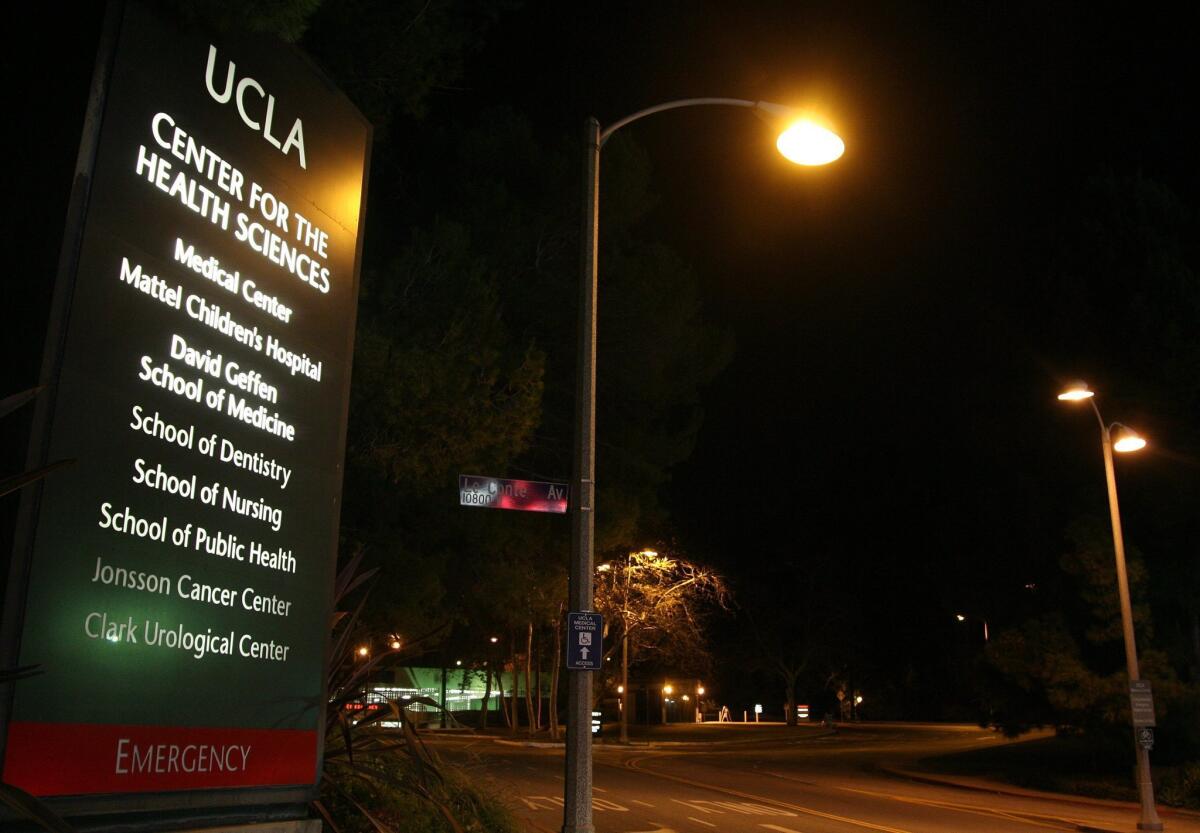A public health compromise for California

- Share via
The Legislature is poised to offer health insurance to millions of additional low-income Californians, with the federal government covering much of the cost. The expansion would be a boon to counties, which collectively spend billions of dollars caring for the indigent uninsured. One sticking point, though, is what to do with the more than $4 billion in sales taxes and vehicle license fees the state has been sending back to counties every year to help pay for public health programs — and that the Brown administration wants to reclaim. Last week a group of nonprofits offered a sensible compromise, proposing that counties keep the funds if they spend them on a more efficient way to deliver care to the needy.
The 2010 federal healthcare law called on states to expand their Medicaid programs, such as Medi-Cal in California, to reach virtually all citizens and longtime legal residents earning up to 138% of the federal poverty level. The federal government would pay all of the medical costs of the newly eligible from 2014 through 2016, then at least 90% of those expenses thereafter, as compared to half of the costs for those already eligible.
Insuring more poor people through Medi-Cal would save counties a bundle. Nevertheless, the money the state has been sending back to them hasn’t been enough to cover their healthcare expenses, and they don’t want it cut even if they have fewer uninsured to care for. Analysts say millions of low-income Californians will remain uninsured in the coming years. Some will be eligible for Medi-Cal but will fail to sign up. Others will earn too much to qualify for Medi-Cal but too little to afford private insurance even with federal subsidies. And more will be ineligible for Medi-Cal because they’re new immigrants or are living in the U.S. illegally.
The proposal by Health Access and other nonprofit advocacy groups would let counties keep the money from sales taxes and vehicle fees for three years, while the feds cover the full cost of the Medi-Cal expansion. After that, counties would receive a set amount per indigent person they enroll in an HMO-style healthcare network, with any leftover dollars reverting to the state. This would make counties much more accountable for the money they receive, while giving the uninsured preventive and coordinated care that’s far more cost-efficient than what they receive at clinics and emergency rooms.
The bottom line is that federal law requires counties to provide emergency care to anyone who needs it, regardless of ability to pay or immigration status. But that’s the most expensive form of care. The Health Access proposal offers a better approach to public health, while leaving counties free to decide who should be eligible for the benefits. The state should embrace it.
More to Read
A cure for the common opinion
Get thought-provoking perspectives with our weekly newsletter.
You may occasionally receive promotional content from the Los Angeles Times.









